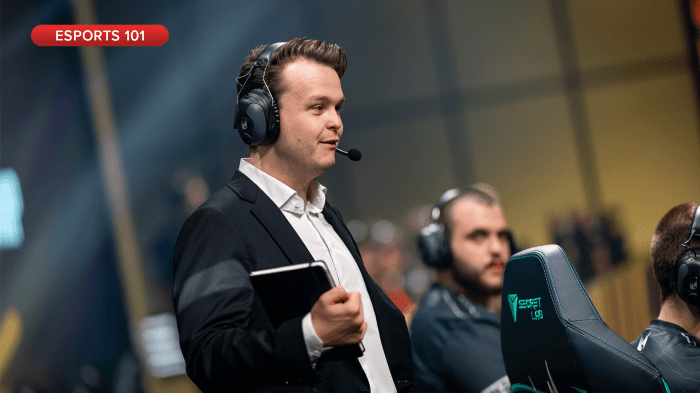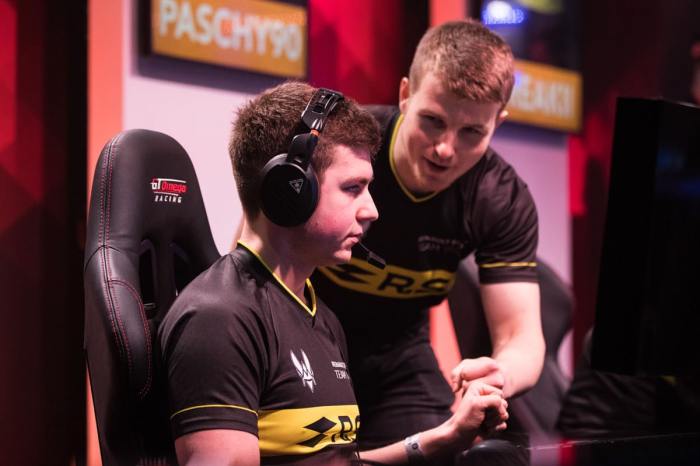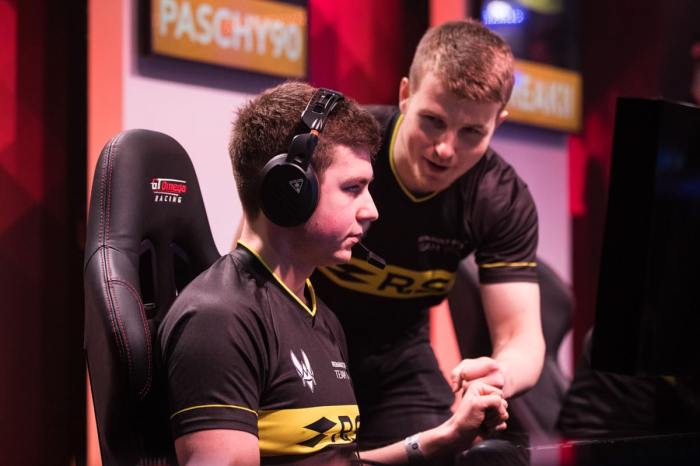Esports coaching is exploding! It’s no longer just for pro gamers; anyone serious about improving their skills in competitive gaming can find a coach. This booming industry offers various services, from one-on-one mechanical training to high-level strategic team guidance, catering to all skill levels and game titles. We’ll dive into the market, explore different coaching styles, and uncover the tools and techniques that make these coaches successful.
This guide covers everything from understanding the market size and revenue streams to mastering effective communication techniques and navigating ethical considerations. We’ll also look at the future of esports coaching, including the potential impact of AI and the evolving demands of the industry. Get ready to learn how to become a successful esports coach or find the right coach to elevate your game!
The Esports Coaching Market

The esports coaching market is experiencing explosive growth, fueled by the increasing popularity of competitive gaming and the desire of aspiring and professional players to improve their skills. While precise figures are difficult to obtain due to the fragmented nature of the industry, market analysts predict significant expansion in the coming years, driven by both the rising number of esports enthusiasts and the professionalization of the industry itself.
Market Size and Growth Trajectory, Esports coaching
Estimating the exact size of the esports coaching market is challenging due to a lack of comprehensive, publicly available data. However, anecdotal evidence and reports from various coaching platforms suggest a rapidly expanding market. The growth is primarily driven by the increasing prize pools in professional esports tournaments, which incentivize players to invest in coaching to gain a competitive edge.
We can see this reflected in the proliferation of online coaching platforms and the rise of individual coaches offering their services. The market’s growth trajectory is projected to be steep, mirroring the overall growth of the esports industry as a whole. For example, the success of platforms like Gamer Sensei, which connects coaches and players, demonstrates the market’s viability and potential for expansion.
Key Demographics of Esports Coaches and Their Clients
Esports coaches typically possess a high level of skill and experience in their respective games. Many are former professional players or high-ranking competitive gamers who transitioned into coaching. Their clients range from aspiring amateur players seeking to improve their gameplay to professional players aiming to refine their strategies and achieve peak performance. A significant portion of the client base consists of young adults (18-25 years old), reflecting the demographic makeup of the broader esports community.
However, the client base is increasingly diverse, encompassing players of all ages and skill levels. The coaches themselves often represent a similar age range, with many possessing extensive experience in competitive gaming.
Business Models Employed by Esports Coaching Providers
Several business models are employed within the esports coaching market. Some coaches operate as independent contractors, offering personalized coaching sessions on a per-hour or per-package basis. Others work through online platforms that act as intermediaries, connecting coaches with clients and facilitating payments. Larger organizations may employ teams of coaches, offering structured training programs and boot camps. Franchise models, where established brands license their coaching services, are also emerging.
Each model presents its own advantages and disadvantages in terms of reach, scalability, and profit margins. For example, independent contractors have greater control over pricing and scheduling but may struggle with marketing and client acquisition, while platform-based coaches benefit from built-in marketing and payment processing but may face higher commission fees.
Revenue Streams Available to Esports Coaches
Esports coaches generate revenue through various channels. The most common is direct payment for coaching sessions, either one-on-one or in group settings. Many coaches also offer additional services like strategy consultations, team analysis, and VOD (video on demand) reviews. Some coaches generate income through subscriptions, offering members exclusive content and regular coaching sessions. Affiliate marketing, where coaches promote gaming products or services in exchange for commissions, is another avenue for revenue generation.
Finally, some coaches leverage their expertise to create and sell educational materials, such as guides, ebooks, or online courses. The diversity of these revenue streams allows coaches to tailor their income generation strategies to their individual strengths and market opportunities.
Types of Esports Coaching Services

Esports coaching is a rapidly growing industry, offering a variety of services tailored to different player needs and skill levels. Understanding the nuances of these services is crucial for both aspiring coaches and players seeking improvement. This section breaks down the main types of esports coaching, outlining the required skills and typical pricing structures.
Individual Coaching
Individual coaching focuses on a single player’s improvement. This type of coaching allows for personalized attention and targeted skill development. The coach works closely with the player to identify weaknesses, create a training plan, and track progress. This often involves analyzing gameplay footage, providing feedback on mechanics and decision-making, and offering personalized strategies. Successful individual coaches need strong communication skills, a deep understanding of the game, and the ability to adapt their teaching style to individual learning preferences.
They also need patience and the ability to provide constructive criticism.
Team Coaching
Team coaching involves working with an entire esports team to improve their overall performance. This goes beyond individual skills; it emphasizes team synergy, communication, and strategic coordination. Team coaches often work on developing team strategies, analyzing opponent playstyles, and fostering a positive team environment. Skills required for team coaching include strong leadership abilities, excellent communication and interpersonal skills, strategic thinking, and the ability to manage diverse personalities.
A team coach needs to be able to motivate players, resolve conflicts, and create a cohesive unit.
Strategic Coaching
Strategic coaching concentrates on the higher-level aspects of gameplay, such as map awareness, objective control, and team composition. This type of coaching often involves analyzing professional matches, developing advanced strategies, and creating counter-strategies against specific opponents. Coaches specializing in strategy need a deep understanding of the game’s meta, excellent analytical skills, and the ability to communicate complex strategic concepts effectively.
They must be able to identify patterns and trends in gameplay and translate those insights into actionable strategies for their clients.
Mechanical Coaching
Mechanical coaching focuses on improving a player’s individual technical skills, such as aiming, reaction time, and movement. This often involves drills, practice routines, and detailed feedback on specific mechanical aspects of gameplay. Coaches in this area require a strong understanding of the game’s mechanics, excellent observational skills, and the ability to provide precise and constructive feedback. They also need patience and the ability to break down complex movements into smaller, manageable steps.
Pricing Structures for Esports Coaching Packages
| Coaching Type | Hourly Rate | Package (10 hours) | Package (20 hours) |
|---|---|---|---|
| Individual Coaching | $30-$50 | $250-$400 | $450-$800 |
| Team Coaching | $50-$100 (per hour, per player) | $400-$800 (per player) | $700-$1600 (per player) |
| Strategic Coaching | $40-$70 | $350-$600 | $650-$1200 |
| Mechanical Coaching | $35-$60 | $300-$500 | $550-$1000 |
Note
Prices are estimates and can vary based on coach experience, game title, and player skill level.
Successful Marketing Strategies for Esports Coaches
Successful esports coaches often leverage social media platforms like Twitch, YouTube, and Twitter to showcase their expertise and build a following. Creating high-quality content, such as gameplay analysis videos, coaching highlights, and engaging social media posts, helps attract potential clients. Building a strong online presence through consistent content creation and community engagement is key. Networking within the esports community, participating in online forums, and collaborating with other coaches and influencers can also significantly increase visibility and lead to new opportunities.
Offering free introductory sessions or consultations can be a powerful tool for attracting new clients and demonstrating coaching capabilities.
FAQ Explained
How much does esports coaching cost?
Prices vary wildly depending on the coach’s experience, the type of coaching (individual vs. team, etc.), and the game. Expect to pay anywhere from a few dollars per hour to hundreds per session.
What games are commonly coached?
Popular games for coaching include League of Legends, Dota 2, Counter-Strike: Global Offensive, Overwatch, Valorant, and many others. The availability of coaches depends on the game’s popularity and player base.
Do I need to be a pro gamer to get coaching?
Absolutely not! Coaches work with players of all skill levels, from beginners to experienced players looking to refine their skills.
How do I find a reputable esports coach?
Look for coaches with verifiable experience, positive reviews, and transparent pricing. Check online communities and forums for recommendations.
